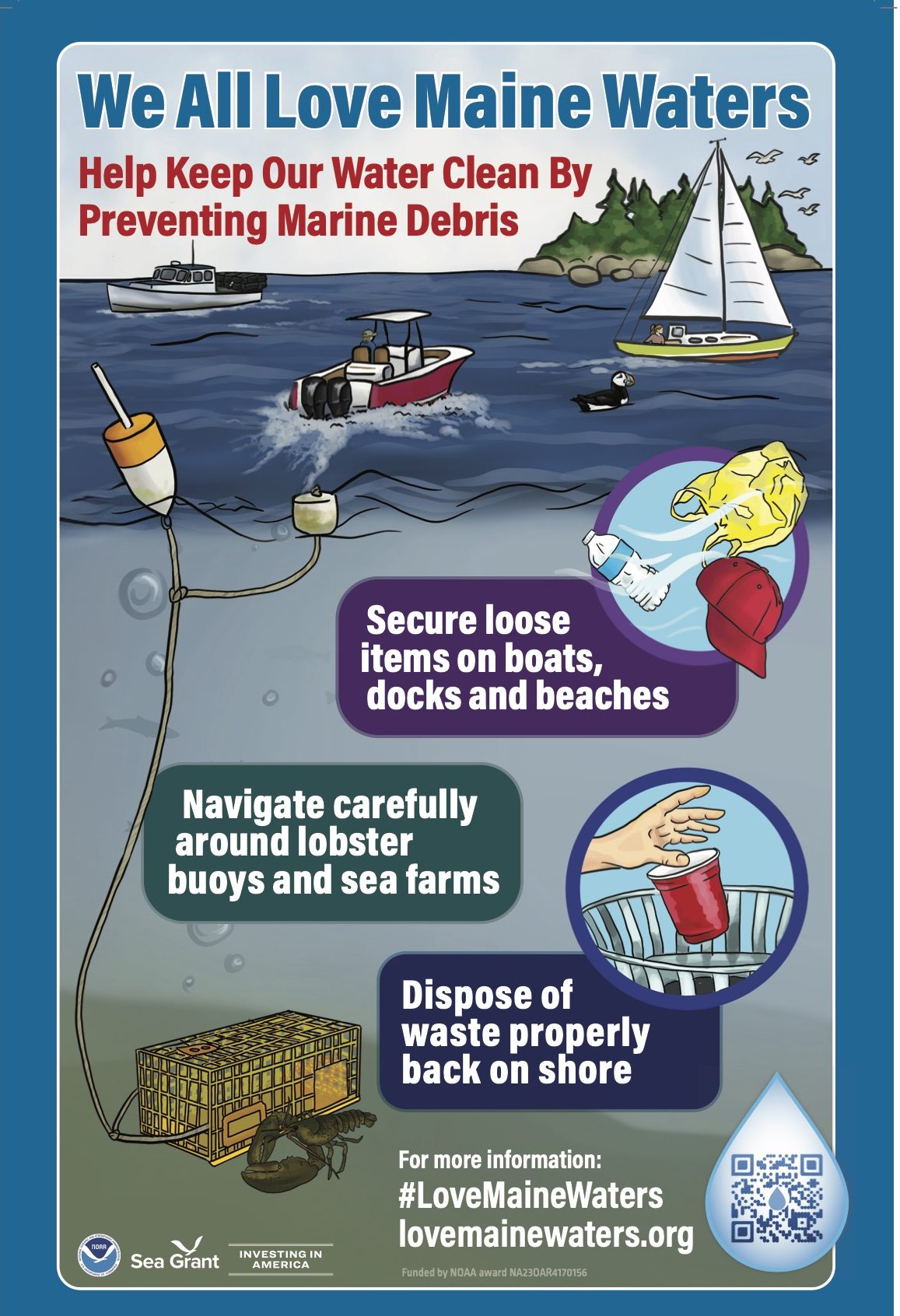Projects
Marine Debris Challenge Initiative
The National Sea Grant Office (NSGO) announced availability of approximately $16,000,000 (with a maximum request of $3,000,000) under the marine debris challenge initiative to support innovative, transformational research-to-application projects that will address the prevention and removal of marine debris, with award periods of three years.
Project Title: Reducing Marine Debris at the Source: Material Replacement and Source Reduction for Single Use Food Packaging
Douglas Bousfield Colleen Walker Yonghao Ni David Neivandt Cindy Isenhour Sarah Bisson Dana Morse
The project aims to reduce sources of plastic marine debris so that it won’t end up in the marine ecosystem. Considering the high costs of removing plastics from the ocean, the volume of material that needs to be removed, and the fact that removing some types of debris, such as microplastics, is currently infeasible, removing them at source can ensure the reduction of plastic inflow into the oceans.
The key objectives of this proposed work are:
Marine Debris Community Action Coalitions
The National Sea Grant Office (NSGO) announced availability of approximately $3,000,000 (with a maximum request of $300,000) to support the creation of coalitions and partnerships among communities, groups, and localities, especially those that have been traditionally underserved, to address marine debris prevention and removal. Two projects were awarded the fund under the Marine Debris Community Action Coalitions.
Project Title: Maine Marine Debris Community Action Coalition: A community education and research development initiative to develop new materials and uses from ghost traps.
Dana Morse James Rutter Buzz Scott
Maine Sea Grant, Haystack Mountain School of Crafts, and project partners were awarded $299,707 to facilitate the recovery, recycling and refabrication of marine debris material in the Gulf of Maine, such as ghost lobster traps and derelict aquaculture farming gear, into new products with creative, practical and industry applications.
Maine Sea Grant and Haystack Mountain School of Crafts propose to develop and coordinate a community action coalition in Maine to increase the recovery, recycling, and refabrication of marine debris material. The Maine Marine Debris Community Action Coalition will consist of three primary partners and eight current collaborating organizations from the education, research, industry, and community sectors, with additional members to be recruited through the proposed project activities.
The key objectives are:
Project title: Reducing derelict fishing gear in the Gulf of Maine: educating and empowering boaters to be a part of the solution

Maine Sea Grant, The Maine Marine Trades Association, and project partners were awarded $156,150 to form a coalition that will co-develop the first organized outreach campaign to Maine’s recreational boaters and commercial fishing vessels on preventing derelict fishing gear accumulation and other marine debris, which result in losses to the local lobster industry as well as economic and environmental impacts to vulnerable communities.
Marine debris is a challenge that affects Maine’s lobster industry, as well as the vulnerable communities such as the sparsely populated or inhabited islands that lack the capacity and resources to mitigate marine debris. Through this project, Maine Sea Grant, Maine Marine Trades Association, Maine Coast Fishermen’s Association, Maine Coastal Program, Maine Island Trail Association, Maine Lobstermen’s Association, and others are forming a marine debris action coalition to co-develop communications products and deliver outreach to educate and incite action, as well as work to reshape the social narrative around who’s at fault and what can be done locally to help prevent marine debris.
Project Website: https://www.lovemainewaters.org/
News and Media
- WERU Community Radio – Coastal Conversations, air date: Sept 27, 2024
- Boats of the Year 2024 – article pgs. 15-21; poster pg. 49
- Maine Boats, Homes & Harbors – July/August issue, pg. 30
- Portland Press Herald – #LoveMaineWaters: Coalition urges boaters to prevent marine debris
- Points East Magazine – July 2024 issue, pg. 35
- Maine Coastal News – July 2024 issue, pg. 13
- Points East Magazine – June 2024 issue, pg 43
- MITA News & Notes – Friday, June 28
